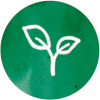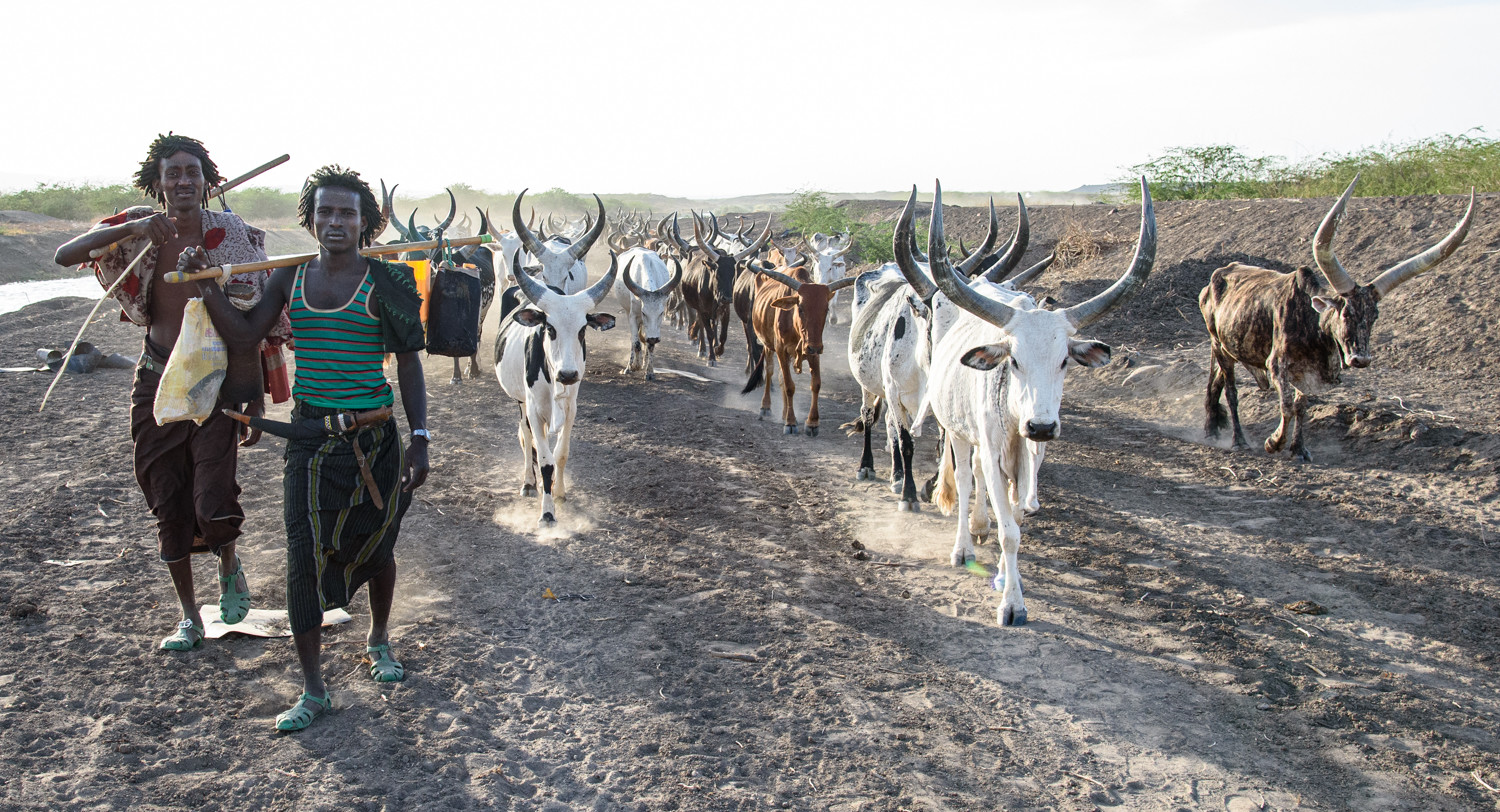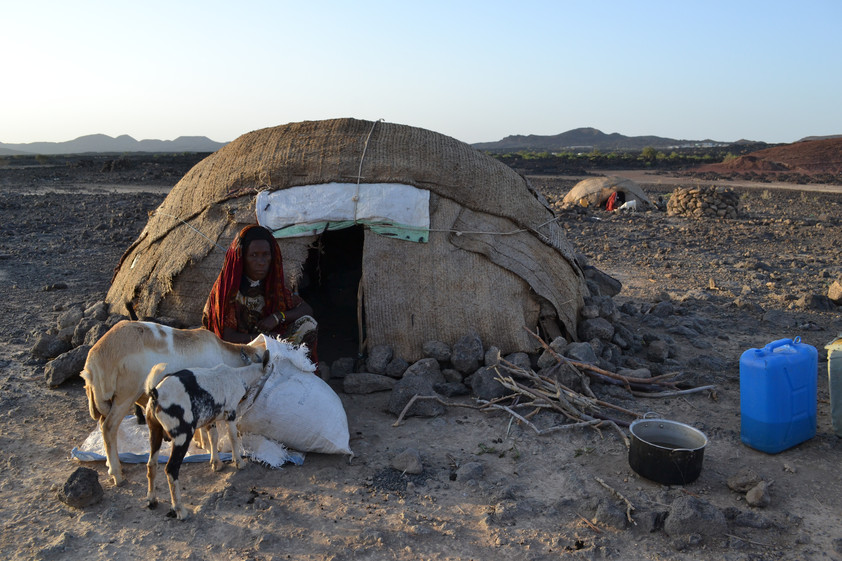 Saving Animals from Life-Threatening Situations
Saving Animals from Life-Threatening Situations
Livestock crisis for pastoralists in Ethiopia
The target region is one of the hottest places on earth, home to the Danakil depression. Climate and its variability are very important in Afar pastoralists' livelihoods. The Afar pastoralists in Ethiopia raise mixed species of primary livestock, usually camels and cattle and keep supplementary herds of goats and sheep. The area and its population have long been neglected by national development efforts due to its pastoralist origin. The recent violence stemming from the situation between the Tigray People's Liberation Front (TPLF) and the Ethiopian government resulted in a crisis of unimaginable proportions in Afar. A vast majority of the animals, the mainstay of the Afar pastoralist community's livelihood, were stolen or killed. Additionally, the region has been affected by long dry spells of heat, with no rain since October 2021. With pasture turning tinder-dry, animals weakening by the day, and many areas reporting animal thirst, we need to act now and support the surviving herds.
Necessity
Cotton rolls in emergency veterinary kits for pastoralist communities in Afar, Ethiopia.
Activity
Our local partner will provide emergency veterinary care to save pastoralist communities' surviving animals.
Countable effort
Number of cotton rolls in emergency veterinary kits: 6,508
Result
Compared to the previous year, hundreds of animals reared by the Afar pastoralists will be saved.
Systemic effect
Improved livelihoods, by way of thriving livestock, for pastoralist communities in Afar, Ethiopia.
Background
The political unrest in the Afar region of Ethiopia has meant that extreme poverty in this region is now at an all-time high. People are displaced, hungry, and have had their homes and livestock destroyed in the conflict. Towns were looted, health centers were stripped of their equipment and medicines, and water pumps and ploughs for the fields were taken. Anything that was left behind was vandalized. The damage caused is to the tune of billions of Ethiopian Birr. In the central Afar region, access to government health services, protected drinking water, and local markets is in complete disarray for 300,000 people. In addition, over 60 schools are damaged. The situation is compounded by the severe impacts of climate change, thus affecting pasture in the area. Pastoralist communities now have no access to veterinary medicines and have appealed to us to provide veterinary care to save their surviving animals. The direct recipient group of this GOOD DEED will be the herds of the internally displaced people in the Afar region of Ethiopia. Our GOOD DEED directly contributes to reducing poverty: if people have their livelihoods addressed with thriving livestock, it means that they can start to address other important needs related to improved health, quality education, and clean water and sanitation.
The good deed
While the need on ground is extensive, some of the urgent emergency programing needs for the internally displaced population are veterinary care supplies, blankets, dates, ground barley, cooking pots, and sleeping mats. For example, 8,408 CA$ supports a team of 15 people to provide emergency veterinary care to sick animals. Our partner is actively working with the local government on coordinating logistics to help internally displaced people. The team is procuring supplementary food for pregnant and lactating mothers and weak children and updating the utilization of contributed funds on their website (www.apda-ethiopia.org). Their health teams are staying vigilant to ensure that diseases do not break out. The support of 24 GOOD DEEDS will contribute to this multi-pronged intervention. The net change would be improved health of hundreds of animals reared by the pastoralist community, leading to secure livelihoods among households that will result in enhanced economic and health outcomes.

About Ethiopia
Semera
Capital of the Afar Region
Population of Ethiopia
115 million (2020)
Per capita GDP Ethiopia
1.273,24 CA$ (2021)
HDI Ethiopia 0.485
173th out of 189 countries (2021)
Afar people live in small shelters that can be easily disassembled and reassembled to fit their nomadic pastoralist lifestyles. Their land is one of the hottest and driest spots on Earth.
About the organization and further information

Website
Further information and source
- • Yves Guinand, 2000. Afar Pastoralists Face Consequences of Poor Rains. Rapid Assessment Mission: 19 - 24 April 2000, UN-Emergencies Unit for Ethiopia, Addis Ababa
- • UNESCO, 2015. Pastoralists of Afar, Ethiopia, On the Frontlines of Climate Change, Africa
- • Addis Ababa Reuters newsroom, 2022. Fighting in Ethiopia's Afar region displaces 300,000, aid blocked to Tigray, Reuters, Global




